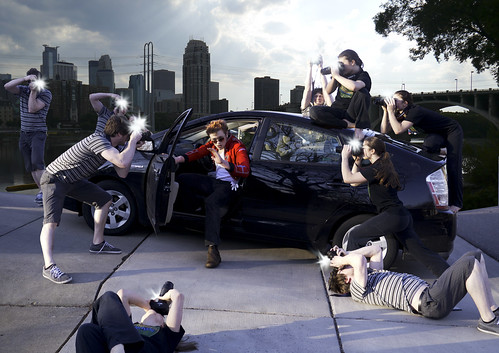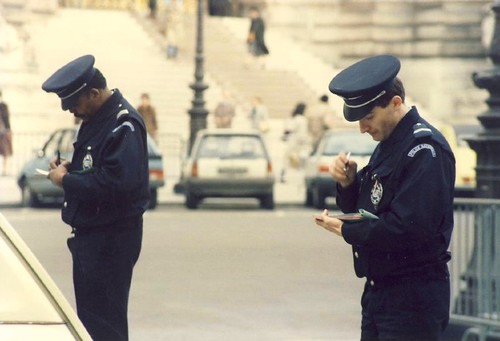Having trouble finishing your stories? Try this technique…
I once read an article that suggested it’s easier to talk to men/boys when you’re doing something else at the same time than by trying to sit down and have a deep and meaningful conversation with them.
[Update from 10 years after I wrote this post: Gender politics aside, this observation turned out to be super-valuable as I negotiated the tightrope walk of ‘raising’ teenagers. The conversations we had in the car, while not-looking-at-each-other have been some of the most, ah, enlightening!]
Some serious research hours went into this study that showed men (and I assume some women) find it easier to have more meaningful conversations when engaged in an activity together, than if encouraged to sit and talk things out.
Maybe they’re hiding something, or maybe they’ve just been socialized to believe feelings are icky.
Either way, it struck me that this is perfect guidance for writers: assume your characters are always hiding something (from themselves or others). Write your scenes with them as if you were a parent trying to have a heart-to-heart with a seventeen year old!
- If you want to ratchet up the conflict, sit them down for an earnest conversation
- If you want to have a breakthrough, give your characters a physical problem to solve together and let the conversation flow while they do it.
In this week’s prompt, I’m building in the activity. You get to pick the characters, the conflict, and how deep you go.
The Prompt
Write A Story Where the Characters are Engaged In A Hobby/Group
Tips
- Don’t pick a hobby you’ll need to research. Pick something you like to do, so you can easily include all kinds of realistic details.
- For example, I might pick knitting or gardening or singing in a choir. Having done all these things, I can easily conjure the personality clashes in a group of enthusiasts
I could also talk about the tiny details that will make it more realistic: like the adrenaline rush when you think you’ve dropped a stitch, or the physical power it takes to belt out the chorus from “O Fortuna”, along with all the bizarre warm-up tricks choral directors have subjected me to over the years, from ‘ma-meh-me-mo-moo” to group shoulder massages!)
- This is a great opportunity to work on character-building. Have your main character interact with all kinds of different characters in the group. See what shorthand you can use for each secondary character in the story, without descending into cliché.
- Try including some tiny, here-and-now moments in the group that echo a larger issue for your main character. This strengthens the theme of the story. (e.g. if you discover that your main character’s issue is that she can’t seem to keep relationships together, allow one of the group’s participants to have issues with commitment to something in the hobby: one month he’s all about cacti, the next month he’s revamping his greenhouse to hold nothing but palms; maybe someone can’t ever seem to knit more than one sock in a pair before moving on to another project; perhaps the newbie on the sports team has been through 14 different sports before this one and can’t settle on one…).
Mine other people’s reactions to this micro-problem to illuminate the answer to your main character’s macro-problem.
- Linking your theme to an in-story event, transforms a character sketch or vignette into an actual story that goes somewhere.
- If you feel you’re missing the mark on this as you write your first draft, don’t worry. Make notes as you go to help you flag this stuff on a future rewrite. (e.g. [“link this to her issue with Dave?’].
The most important thing today, is to get a first draft finished. Get to the end of your main character’s story and set a date to come back and beef up all the theme/image/foreshadowing stuff later. (Pro tip: Put it on your calendar!)
Come back and leave a comment to let us know how you got on, this week!
[updated: 11 March 2024]

![[Write On Wednesday] Time Slowed Down](https://storyaday.org/wp-content/uploads/2014/03/Screen-Shot-2014-02-10-at-1.35.17-PM.png)


![[Write On Wednesday] The Glitterati](https://storyaday.org/wp-content/uploads/2014/03/Screen-Shot-2014-02-10-at-12.31.58-PM.png)

![[Write On Wednesday] Misunderstood](https://storyaday.org/wp-content/uploads/2014/02/Screen-Shot-2014-02-10-at-12.10.36-PM.png)

![[Write On Wednesday] The Irritable Author](https://storyaday.org/wp-content/uploads/2014/02/Screen-Shot-2014-02-10-at-11.52.10-AM.png)
![[Write On Wednesday] Sidelong Glances](https://storyaday.org/wp-content/uploads/2014/02/Screen-Shot-2014-02-10-at-12.08.23-PM.png)